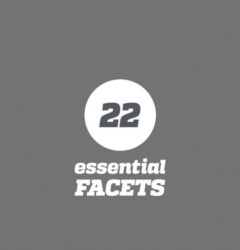23 Dec

A knowledge sharing project can make a huge difference to your organization’s development and ultimately boost the bottom line—but only if it works! Many of our clients come to us after previous projects have failed. Know the pitfalls, and get it right the first time!
Over the last twenty years, Knowledge sharing has become a central concern for ambitious businesses. Top players know the importance of team alignment, employee engagement and creative collaboration. These processes all require the same foundations: effective knowledge sharing.
To achieve this, managers need a way to break down information silos and make sure everyone has the information they need, without bombarding them with unnecessary documents. By organizing information according to who needs what, a well organised knowledge-sharing platform can save a worker hours every day. So, the potential benefits to implementing a Knowledge sharing system are well understood!
The outcome of Knowledge sharing projects are reported as remarkably successful, either in terms of financial savings, revenues generated or the level of user acceptance. For example, Xerox was estimated to have saved $100 million from its Eureka database. Reported cases of project failures pale in comparison to the success stories—but that doesn’t mean it isn’t happening! According to global market intelligence firm, IDC, Fortune 500 companies lose at least $31.5 billion a year by failing to share knowledge.
After 13 years working with organizations from across the industries, we have certainly seen how much our clients gain from implementing an efficient Knowledge sharing system. But we also know that all too often, clients come to us after experiencing failed Knowledge sharing initiatives. This time, they want it to work. By investigating the reasons why previous projects have failed, we have gained valuable insight into the pitfalls to avoid when implementing a Knowledge sharing project.
**The Myth of the Magic Tool **
Something we have seen all too often, is organisations believing that all they needed to do was find the right software tool and everything else would follow.
Now, as knowledge sharing software providers, we certainly don’t think you should underestimate the power of a good tool.But no matter how intuitive and sophisticated your system is, successful knowledge sharing involved the interaction of procedures, people and technology. Think of your knowledge sharing tool as a way to support your employees and a means of instigating new processes. A good software system can help to disseminate your company culture and good practices, but it can’t create them! It will serve as a framework, but it is up to the organisation to establish a positive company culture and support its teams to share knowledge for the good of the organisation.
Short-term Thinking
The key to Elium’s success is that it adapts and keeps evolving with client needs. The company is never static, but strives to create a constantly evolving, fresh user experience that makes knowledge more than the sum of its parts.
One of the greatest errors an organization can make is to view their new system as a ‘project’. This implies it will come to an end! Often, clients come to us after they have tried to implement a single initiative, believing that once their project has concluded, their Knowledge sharing issue should have been ‘dealt with’.
But that’s just not how Knowledge sharing works. Sustainable Knowledge sharing means integrating a new Knowledge sharing approach throughout the organization. It means establishing a new system that can adapt and grow with your employee’s needs. It means taking a strategic approach, and positioning your Knowledge sharing strategy at a program level.
When we work with clients, it often happens that the team responsible for implementing Elium is given the task as a ‘project’. We always emphasise that the job really starts after the platform has been designed. It is essential that a team is tasked with encouraging employees to contribute, establishing procedures,and tweaking the platform to the evolving needs of their staff. Make sure to integrate your system into every teams’ practices and routines, and that it changes with them.
Having personnel dedicated to Knowledge sharing is not a cost for your company. Rather, by optimizing your central knowledge base, it will save employees hours that would otherwise be spent searching for the right information. They will have the opportunity to inspire one another and learn quickly and easily about any changes in procedures or rules.
The COVID-19 pandemic has shown us how important it is to have a continuously active system in place. Because our clients already had easy-to-use systems for collecting and distributing knowledge, their systems could broadcast important decisions and procedural information, while also distributing relevant resources to individual workers. This helped to coordinate everyone during times of uncertainty, and proved invaluable in the shift to remote working.
Exclusion
Employee engagement means making sure everyone feels part of their organization. This is why transparency is very important. Knowledge sharing should empower employees. It should keep them in the loop, and assure them that their voice and expertise are valued.
A recent study shows that while productivity increases by 56% when employees understand how their work contributes to company objectives, a mere 7% of employees today fully understand their company’s business strategies and their role in achieving company goals. This is why services like Elium encourage clients to include all employees in their platform, and reach all teams, whatever their role.
Your Knowledge sharing system should make it easier to share ideas and opinions. Indeed, many of our clients have a feedback process built into their Elium, so that they can get clear and direct insight into the views of their employees.
A good knowledge sharing system also provides a central, online workspace for clearly articulating and disseminating your organization’s ethos, goals and beliefs. Before the knowledge sharing system is established, make sure to involve staff in defining their knowledge sharing needs; during the project, check in with employees and work with them to adapt it to fit their practical use.
Not everyone in your organization will be thrilled about changing their usual procedures. It is important to get teams on board by ensuring transparency and encouraging involvement. The last thing you want to do is alienate your employees—it’s only with your employees on board, that your new system will work at all! At Elium, we encourage clients to involve the whole company in establishing their new system. From the name you choose, to the way you cascade information, your job is to ensure that the new system empowers your employees and draws the whole company together!
Vaguery
Our clients use their Elium to centralize their communication, reiterate their company identity, align teams and engage clients. They do this by creating a system that draws together communication and knowledge sharing.
It is essential that managers are precise about their objectives. Often, clients come to us with the accurate but broad goal of “increasing collaboration and knowledge sharing”. We ask them to define the objective more exactly, so that we can figure out not only how to achieve it, but how to measure it. A clients may state that they want to capitalize on after-actions reviews after missions, or create one transversal project between the sales and marketing teams. They may simply want to increase employee satisfaction with process efficiency or access to resources.
We work with our clients to establish measurable, concrete objectives!
If your objectives are not concrete you have no way to measure them, and no way to track the success of your project.
Even if we know that there are untenable and qualitative benefits, such as better collaboration, and stronger company culture, it is still essential to have measurable objectives.
For one thing, it helps to protect your Knowledge sharing system. If you can’t show its impact, how can you prove to management that it is an asset, rather than a cost?
Get going!
Don’t be disheartened if you have tried a Knowledge sharing project before. This time, you can avoid the pitfalls and implement a really effective, sustainable and adaptive system that will save you and your staff time, energy and stress. Our clients have had immense success using their Elium to organize knowledge and direct it towards those who need it.
Why not get in touch for a free trial? Let us guide you to success!






